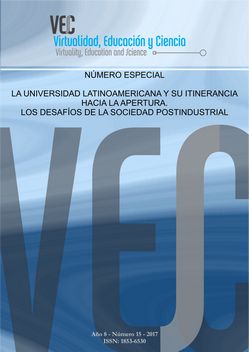An Approach to Instructional Theory, a Response to the educational challenges of the Post-Industrial Society
DOI:
https://doi.org/10.60020/1853-6530.v8.n15.18966Keywords:
postindustrial society, instructional theory, Information and Communication TechnologiesAbstract
At the beginning of the 21st century, society demands education capable and well-prepared people to successfully intervene in the creation, application and dissemination of knowledge in a world that shows a growing gap between those who access and enjoy the innovations that the technological progress provides and those who remain unable and powerless to reach them. Many causes are attributed to this problem, economic factors, labor and especially academic obstacles, to the point that students can not sustain the study at the university level. The Post-Industrial Theory of Instruction directs the educational processes in the learning, centers the instruction in the student and seeks to enhance their talents and abilities; attaches importance to personalized instruction and discards standardized training. And it recognizes ICT as a useful means to optimize educational relations.Downloads
Download data is not yet available.
Downloads
Published
2017-12-23
How to Cite
Campana, I. (2017). An Approach to Instructional Theory, a Response to the educational challenges of the Post-Industrial Society. Virtuality, Education and Science, 8(15), 173–179. https://doi.org/10.60020/1853-6530.v8.n15.18966
Issue
Section
Notes and Reviews
License
The generation of derivative works is allowed as long as it is not done for commercial purposes. The original work may not be used for commercial purposes.


